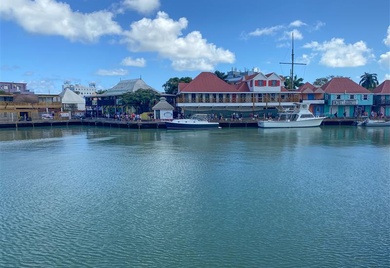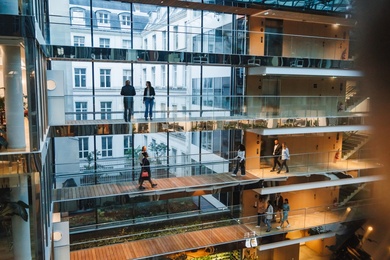Expo Milano 2015 – an unlikely place for sustainable business?

[caption id="attachment_3397" align="aligncenter" width="624"] The corn cob inspired the architecture of the Mexican pavilion at this year’s Expo, focused on global nutrition.[/caption]
The corn cob inspired the architecture of the Mexican pavilion at this year’s Expo, focused on global nutrition.[/caption]
To address these challenges, sustainable businesses and other stakeholders need to make conscious investment decisions, develop and support sustainable lifestyles, and use the best technology to create a balance between the availability and the consumption of resources.
145 countries are participating in the Expo with national pavilions, showcasing typical foods that are grown in their regions and offering a glimpse into global food industry value chains that originate on farms from their lands. El Salvador, for example, focuses its presentation on the extraordinary quality and variety of the Salvadoran coffee grain and best practices in the industry. At the same time, visitors can taste different coffee varieties prepared by one of Italy’s major coffee brands (and Expo sponsor), Illy. The company was just recently recognized as one of the world’s most ethical companies for fostering a culture of ethics and transparency at all levels of the organization. For consumers it is a virtual tour from bean to cup.
Some pavilions at the Expo are run by large food companies directly, taking advantage of the Expo as a stage to highlight their sustainability efforts. Coca-Cola, for example, perceived by many as an unlikely player to address the global food crisis, presents its sustainability strategy centered on engaging with local producer communities, reducing the environmental impact along its value chain, and advocating for a balanced calorie intake at the consumer end. One of the company’s initiatives in Latin America in partnership with WWF is aimed at protecting the Mesoamerican reef by reducing freshwater use at the bottling company level. In Honduras, one of the plants has achieved a 21 percent reduction of water use since 2010, while waste water treatment and reuse has been improved.
These examples show that glossy events like the Expo present opportunities to look for sustainable business opportunities and best practices in the unlikeliest of places. Feeding the world, providing healthy nutrition to all, and reducing food waste are global challenges that can only be solved by involving everyone from the small farmer to the processing industry and all the way to the consumer.
Stay tuned for upcoming events involving Latin American and Caribbean countries at Expo Milano 2015 and more on sustainable business opportunities in agriculture and the food and beverage industry.
LIKE WHAT YOU JUST READ?
Subscribe to our mailing list to stay informed on the latest IDB Invest news, blog posts, upcoming events, and to learn more about specific areas of interest.
Subscribe



